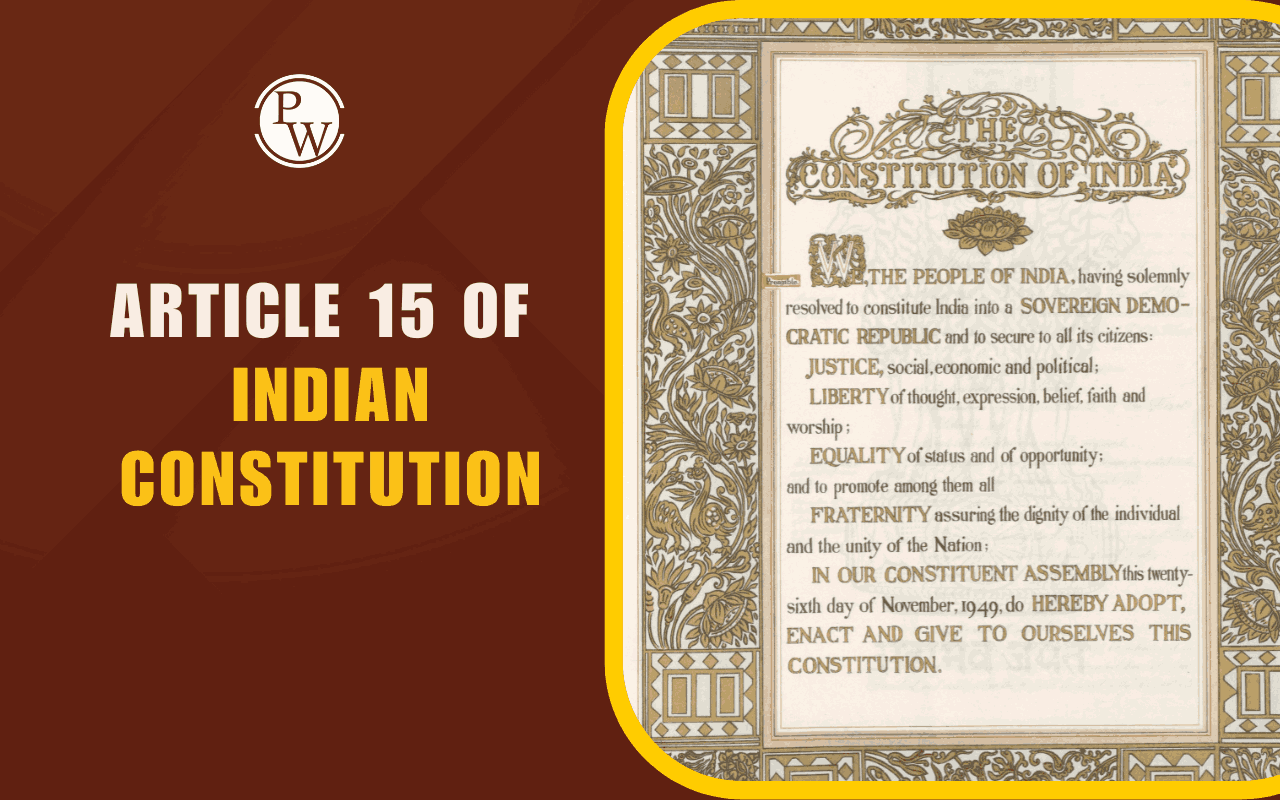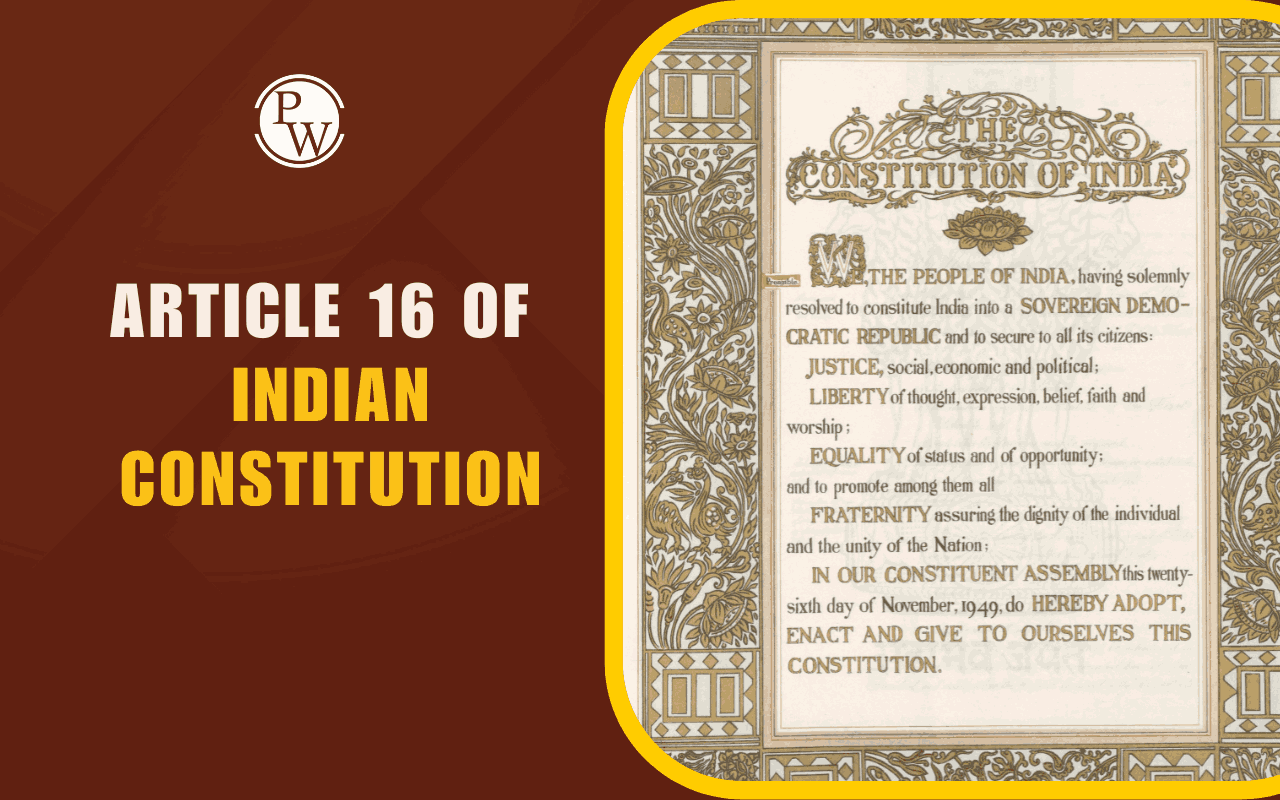

The National Commission for Minorities (NCM) is a statutory organization that plays a crucial role in safeguarding the rights of minority communities in India. Established under the National Commission for Minorities Act, of 1992, it ensures that minorities receive opportunities and protection as per constitutional provisions. Read on to learn more about NCM!
About the National Commission for Minorities (NCM)
The National Commission for Minorities (NCM) was formed to address issues related to India's minority communities. It works to uphold constitutional safeguards and ensure equal treatment for minorities in education, employment, and social welfare.
-
Establishment: It was first constituted in 1978 by an executive resolution by the Ministry of Home Affairs. Later, the NCM was set up as a statutory body in 1993 following the enactment of the National Commission for Minorities Act, 1992.
-
Ministry: Ministry of Minority Affairs
-
Objective: To monitor the progress and development of minorities and safeguard their constitutional rights.
-
Communities Covered: The Government of India has recognized six religious communities as minorities:
-
Muslims
-
Christians
-
Sikhs
-
Buddhists
-
Zoroastrians (Parsis)
-
Jains
-
Composition: Chairman, Vice-chairperson, and 5 Members. Notably, out of seven members, five including the Chairperson, must belong to minority communities. At present, there are a total of five members in the commission.
-
Tenure: Three years, responsible to the Central Government.
-
Report: Annual report to the Centre which is presented before each House of Parliament.
-
National Commission for Minorities Headquarters: New Delhi
The Commission serves as a bridge between minority communities and the government. It ensures the effective implementation of welfare schemes and safeguards provided by the Constitution.
National Commission for Minorities Act 1992
The National Commission for Minorities Act, 1992, provides the legal framework for establishing and functioning of the NCM. The Act was enacted on May 17, 1992, and defines its structure, powers, and responsibilities. As per the NCM Act, a "minority" refers to a community notified as such by the Central Government.
National Commission for Minorities Act, 1992 Act empowers the NCM to function as a statutory body with the authority to take up issues concerning minority rights. It applies to the whole of India, excluding Jammu and Kashmir.
National Commission for Minorities Article
Although the Indian Constitution does not directly mention the NCM, it aligns with constitutional provisions that protect minority rights. Here are constitutional provisions for minorities, which are overseen by the NCM:
-
Article 29: Protects the cultural and educational rights of minorities.
-
Article 30: Grants minorities the right to establish and administer educational institutions of their choice.
-
Articles 15 & 16: Prohibit discrimination on the basis of religion, race, caste, sex, or place of birth and ensure equal opportunities in public employment.
-
Article 25 to 28: Ensure religious freedom for all citizens.
The NCM plays a crucial role in enforcing these constitutional safeguards to protect minority interests and promote social inclusion.
Structure of National Commission for Minorities
The NCM consists of a Chairperson, Vice-Chairperson, and five Members, all appointed by the Central Government. The law mandates that five out of the seven members, including the Chairperson, must belong to minority communities.
-
Composition:
-
Chairperson
-
Vice-Chairperson
-
Five Members
-
Tenure: Members serve a three-year term from their date of appointment.
-
Support Staff: The Commission is assisted by a Secretary and other officials provided by the government.
Also Check, ‘Minorities Rights Day’
Here is the present composition of the NCM:
National Commission for Minorities Chairman
The Chairperson of the NCM is appointed by the President of India and leads the Commission to ensure that it functions effectively. The other five members of the commission are nominated by the Central Government. The Chairperson plays a crucial role in addressing grievances, advising the government, and making policy recommendations. NCM Chairperson:
-
Presides over Commission meetings.
-
Represents the NCM in governmental and public forums.
-
Oversees investigations into minority-related issues.
-
Ensures timely submission of reports and recommendations.
The current Chairman of the National Commission for Minorities is Shri Iqbal Singh Lalpura. He has held this position since April 13, 2022.
Powers and Functions of National Commission for Minorities
The NCM has wide-ranging powers under the National Commission for Minorities Act, 1992. It possesses the powers of a civil court and acts as a watchdog for minority rights. Here are its powers and functions:
Functions of the NCM:
-
Monitoring Development Progress: Evaluates the socio-economic and educational development of minorities.
-
Ensuring Safeguards: Monitors the implementation of constitutional provisions and laws that protect minorities.
-
Making Recommendations: Provides recommendations to ensure the effective implementation of safeguards and welfare programs for minorities.
-
Addressing Complaints: Investigate and resolve complaints related to the deprivation of rights and discrimination against minorities.
-
Conducting Research: Conducts studies and research on socio-economic and educational issues affecting minorities and suggests measures for their upliftment.
-
Reporting to the Government: Periodically reports to the Central Government on matters related to minorities, ensuring accountability.
Powers of the NCM:
-
Summoning Individuals: The NCM has the authority to summon individuals for testimony.
-
Document Production: It can demand the production of documents and other evidence.
-
Receiving Affidavits: The Commission can receive evidence through affidavits.
-
Access to Public Records: It has the power to access public records from courts and offices for investigation.
-
Issuing Commissions: The NCM can issue commissions for the examination of witnesses to ensure thorough investigations.
In conclusion, the National Commission for Minorities (NCM) plays an essential role in protecting the rights and interests of minority communities in India. Through its investigations, recommendations, and policy interventions, it ensures equal opportunities and safeguards for minorities.
Want to stay ahead in your UPSC preparation? Explore PW UPSC Courses for guidance, study material, and structured mentorship!
National Commission for Minorities FAQs
What is the National Commission for Minorities?
How many members are in the National Minority Commission?
National Commission for Minorities was established in which year?
Where is the headquarters of the National Minority Commission?
What is the role of the National Commission for Minorities?













